I had a conversation over drinks last night with two gorgeous young Hungarian women about the realities of homeschooling (home education, world schooling, unschooling, whatever you’d like to call it). They were totally new to the concept of education outside school and thought classrooms and teachers were the only way to get educated. They seemed convinced by how we cover maths, but one of them wanted to know how I teach history. So let’s just try and explain how this homeschooling world schooling or unschooling thing works for us (and could for you) in relation to learning world history. A post on homeschooling history.
We go for world history, not history dictated by home state or national curriculum. Just some thoughts on education, see what you think.
How to Homeschool or Worldschool History
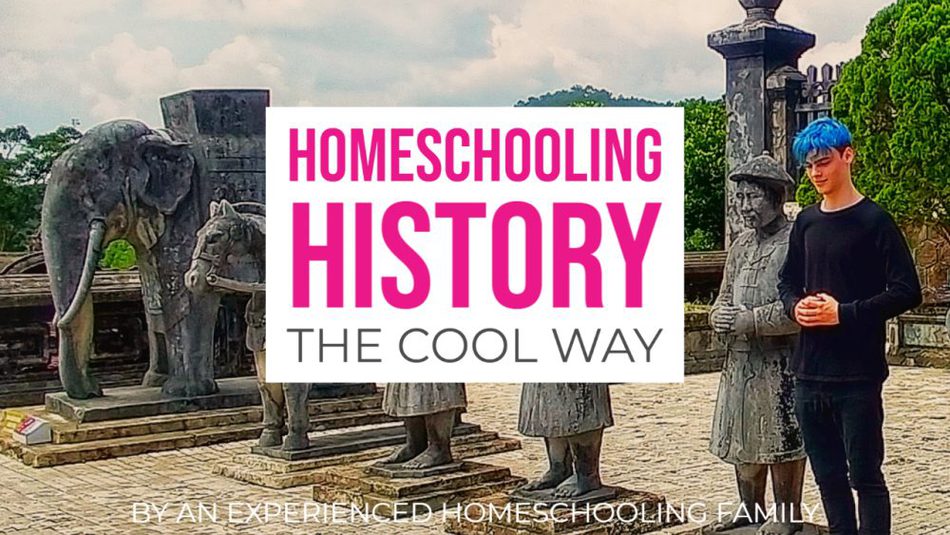
First Let’s Just Forget That Word “Teach”
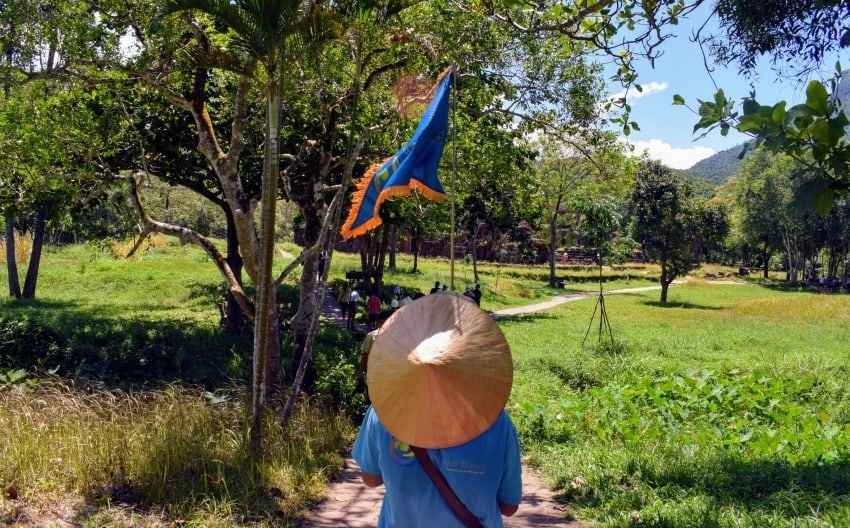
When I was in school, back in the dark ages pre-internet, I was “taught” in school. Only I wasn’t.
I sat motionless in a classroom and mostly switched off while a teacher droned on about something or other. The learning actually happened when I had to memorise stuff to regurgitate for tests and exams.
I promptly forgot it all again straight afterwards because I was never interested and never really required to, or needed to, understand.
I’m sure there are some great teachers out there who make history the most fantastic, interactive, immersive topic in the educational universe. Maybe, if their hands aren’t tied by testing and curriculum.
Why on Earth would we as homeschooling parents copy that model?
We do not teach.
That is not how it works. We lead gently and present learning opportunities (strewing), we encourage interest, we provide tools and resources, we try to get them interested in history because it is then that the learning happens.
Yes I’ve read the curriculum, yes I have school approved course books on my shelf at home, but there is no way that I’ll try to make them memorise (that is NOT learning) those facts.
I want more for them. I want them to love history and learning about history just as I do, now, long after school.
So I’ll read the curriculum. I’ll find out what’s on it and we’ll go about it our way. Our way is better because I know my kids inside out and what works with them and at what age, time of day, level of hunger or energy and level of maturity.
One of our all time favourite history resources, above, John Green’s AWESOME ( watch it!) Crash Course in World History. We started at the very beginning and we’re working our way through. Here, Mesopotamia again, we dig Mesopotamia on so many levels. History is not boring, it’s fun to find out about if you do it the fun way.
Times have changed and these days anyone can learn anything from the internet. If you want an old-school teaching type model, with lectures and tests, go to Khan Academy. If you want a more interesting, video approach go to YouTube, maybe the History Channel. Don’t forget gaming, Assassin’s Creed revealed many areas of history none of us knew anything about. See our pick of the best online educational sites here.
If you or your child has a particular interest in a particular historical topic, Google it. Google’s knowledge of history is far more comprehensive than that of any teacher or textbook and it’s there at our fingertips, any time, any place.
Which Parts of History Do You Think They Need to Know?
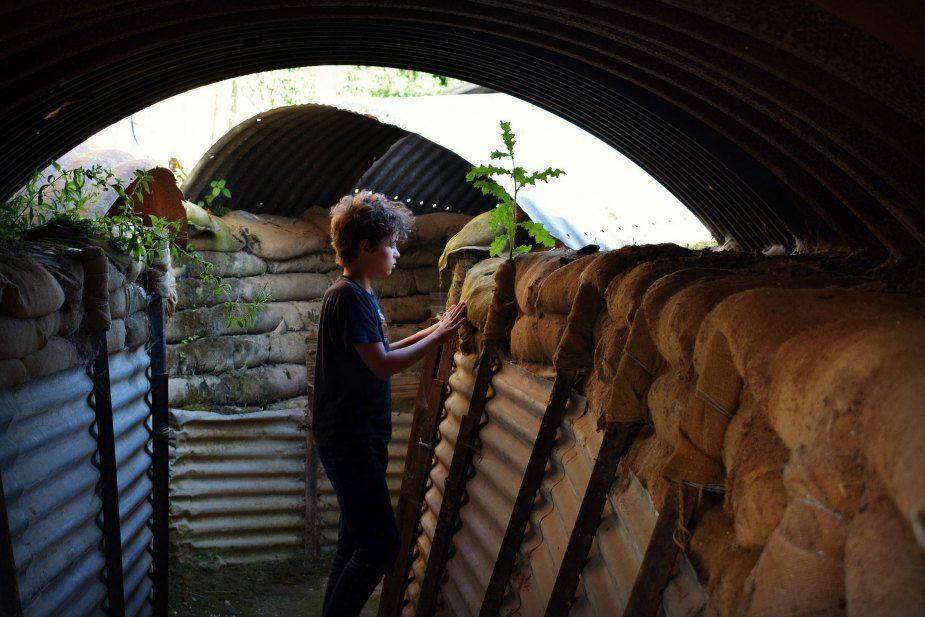
I asked these ladies what parts of history they thought the kids needed to know and they came out with a pretty reasonable list of historical topics, for Hungarians.
Like most of us they thought that the history they had memorised during their school years was it, that was what the important bits were, that was what everyone needed to know. So I told them what was on the Australian history curriculum and on the British version. They are different.
I want my boys to have a knowledge of world history, not just region or country-specific required history, so we set about doing that. Sure we cover Captain Cook, Aboriginal history and Ned Kelly, but we also cover the wars, the ancient civilisations, the movements of peoples, the modern history, the American, Thai and Guatemalan history. Freedon of learning, this is one of the reasons why we homeschool.
Share this to Pinterest for us? Thanks!
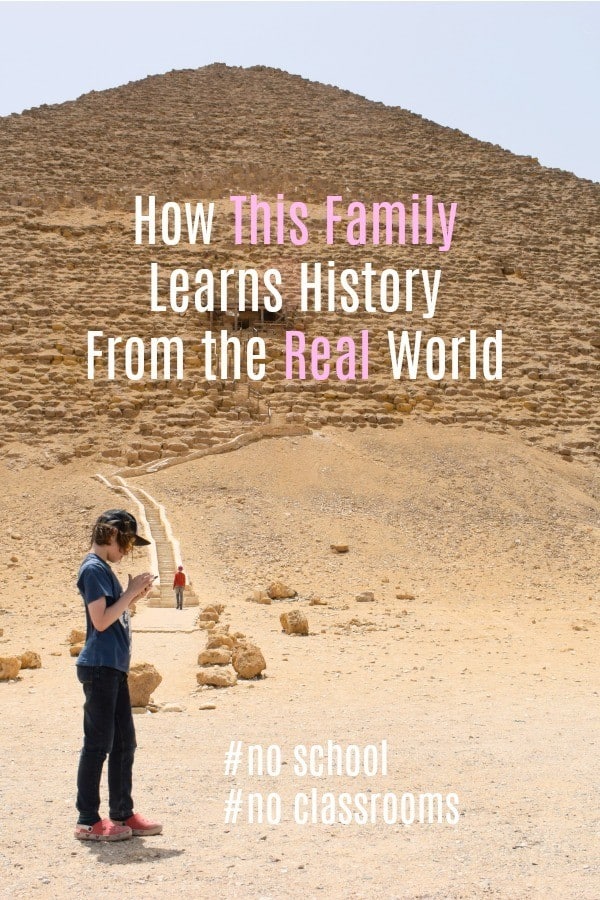
I actually dropped school history at the age of 12, so maybe I’m not “educated”? Am I not? I never sat a history exam to get a piece of paper proving historical competency because I was funnelled towards the sciences. I sat 10 or 11 O Levels (now GCSEs) at 15 years old, history wasn’t one.
I know far more about history today that I ever did as a child and probably far more than most adults because I’ve learned right alongside the boys as their interests and lives have lead them to the learning.
This week we’ve been looking at Mesopotamia, Egypt and Indus Valley civilisations on YouTube and Khan Academy. How’s your knowledge on those? Ours is pretty good.
We also did some modern British history, we watched The Crown on Netflix. Learning history is that easy so long as you can make it interesting and thank you Netflix for doing just that and using Matt Smith as Prince Philip. That series has springboarded us into so much further research and interesting discussions, thanks again, you rock. We took this interest to Scotland with us to take a look at the Royal Yacht Britannia, that was cool.
But their father, in total contrast to my scientist self, is a big history fan and can talk for hours on wars, European and Asian. Yet he did really badly at most of his school exams. He’s a great Chef, was a manager and department head, but his school education failed him.
He has also been educating me and filling my gaps in school knowledge as we learn and grow every day. I’m the conventional did-well-at-school brain, he’s not, yet his interest makes him the superior authority here.
For the record, if you go to Chef brandishing your brand new hospitality degree and asking for a job, he’ll laugh in your face. You are not qualified.
I’ve gone off on a tangent, but my point is here that knowing all and any history is relevant and valid, history does not simply comprise what is on one country’s curriculum. The curriculum is a minimum requirement to pass the state-approved exam. Exams are not compulsory. We want to know it all and we like to check our sources and framing from all angles.
Kids Learning History All By Themselves, Natural Learning
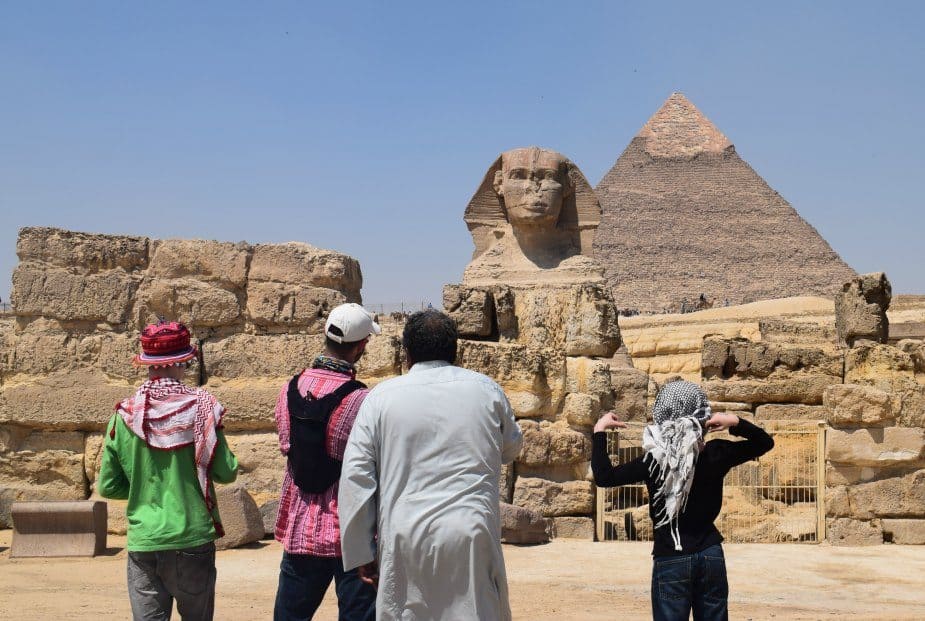
My boys have gone off and learned all sorts of cool historical stuff with absolutely zero input from me. It started with the Horrible Histories series, on TV, in paperback and audiobook form. We had those audiobooks on loop in the car for years (you can shop for some of these resources at the end of the post).
Shortly after their Horrible Histories era they progressed to reading books of their own choosing for pleasure. They demolish books at an alarming rate and Rick Riordan was a key player here in getting them hooked on the Ancients.
It started with the Percy Jackson series, then his Greek, Roman and Viking based mythological fictions. They are obsessed with ancient history and mythology, can’t get enough of it. Because of that interest they will deepen their knowledge in further reading, Googling, movie watching and YouTube trawling.
If you’re interested, here is a post (call it a project or essay if you like, but I make a good living writing posts not essays, so that is our focus) the kids wrote on some of the stuff they find interesting about Egypt. It all started with Rick Riordan, the month we spent in Egypt was the icing on the cake and now they learn more from Khan and so on.
They are still fascinated, this knowledge will continue to grow throughout their lives. I hope. There’s another one here my elder son wrote on Thai History, if you’re interested, he was.
Now I have a 13 year old. He spends a lot of time on YouTube because that is what he loves. He amazes me sometimes with things he’s picked up while surfing and he’s learning all the time. Likewise his books lean towards the historical, same same, his knowledge grows.
Kids Learn Best When They Are Ready to Learn
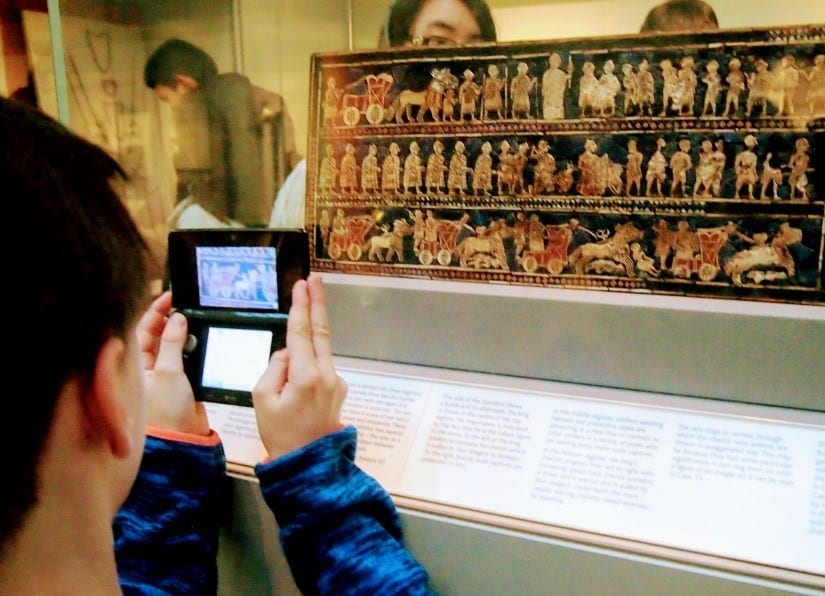
You can tell a kid a fact a million times and they won’t remember it. If they ask about that fact because something has sparked an interest, they will learn it and often go far deeper into that topic. You just need to wait until the interest arrives.
OK so maybe it never will, I used to worry about that too, a lot, but at 10-11 years old the educational sparks really started flying. They want to know so much stuff and we’re more than happy to help them with that.
Do Homeschooled Kids Sit Exams to Prove They are “Educated”?
Nope. Homeschooled kids are not required to sit exams. (national variation of course apply, in the UK, no, they are not)
” But how will they ever get a job or get into university?” I hear you scream.
Well here’s the shocker, I don’t want them to go to university or get a job. I never want them to have to work for somebody else (I don’t), I believe that most university degrees are worthless (I have one).
Back in the day, the educational elite were the only ones with the tertiary pieces of paper, now the world and his dog goes to university. It’s a devalued system that traps kids with years of debt. education is an industry and we, the consumers, are being told to buy.
A degree is just a commodity with a dollar value, it’s commercial, it’s a product. Yes, I know, that is an excruciatingly privileged thing to say.
However, maybe they will want to go that way, maybe they’ll want to go into a profession where a degree is required (medicine, vet, law etc.,) or maybe they’ll want to go through sheer academic thirst. If so we’ll do it. They can still sit the exams, still get in, fairly easily actually but I’m not going to explain that whole process here.
I don’t know what the future holds, no parent does. The parents of traditionally schooled kids don’t know either. Kids still come out of the school system unable to read or so angry at the system that they shoot up the school (ouch!) but I know for sure that right now we’re winning.
We have a 100% reading success rate at our school. Not every school can say that. Incidentally, I didn’t “teach” them to read, they mostly taught themselves with huge success and a lot of it came through gaming and wanting to be able to communicate in those little text boxes.
Homeschool History Field Trips
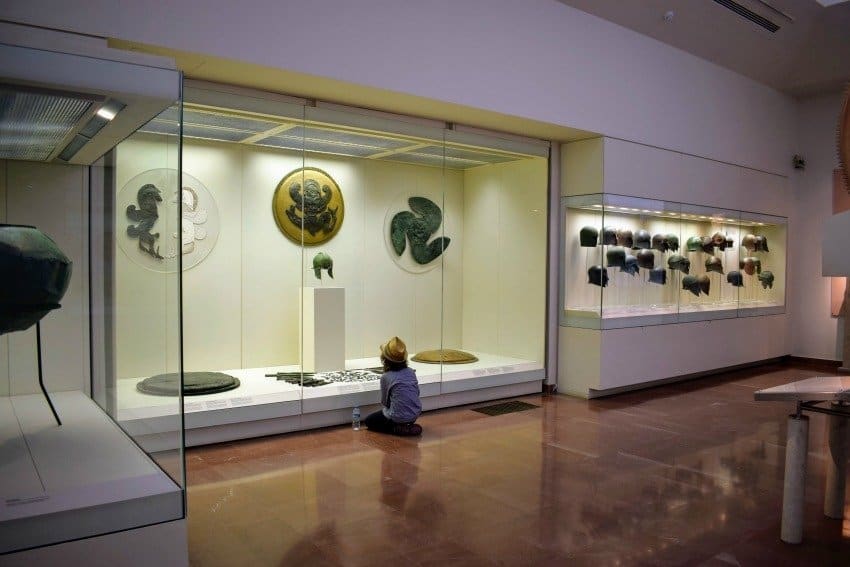
We have slightly (a lot) more physical and financial freedom than most families. We appreciate that, not many people get to travel the world for 5 years in the name of education, but we wanted it, so we made it happen.
If you are somewhat more geographically restricted, use museums and local history. I had Welsh and Roman history on my doorstep in Wales. Drive 2 hours to London and I could travel in time and place at the British Museum (it’s free!). There are opportunities everywhere if you just look for them.
Something I’ve noticed, through spending many hours in museums all over the world with my kids, is that the school groups, free from the classroom for a day, mostly have their attention on anything but the museum.
It’s not the case when you take kids in ones and twos rather than in a group. It’s noticeable, it’s obvious. It’s just my observation. Of course, we get to go on so many more and more diverse field trips than any school kid, we’re really privileged.
Homeschool History Resources We Have Used, Free and Bought
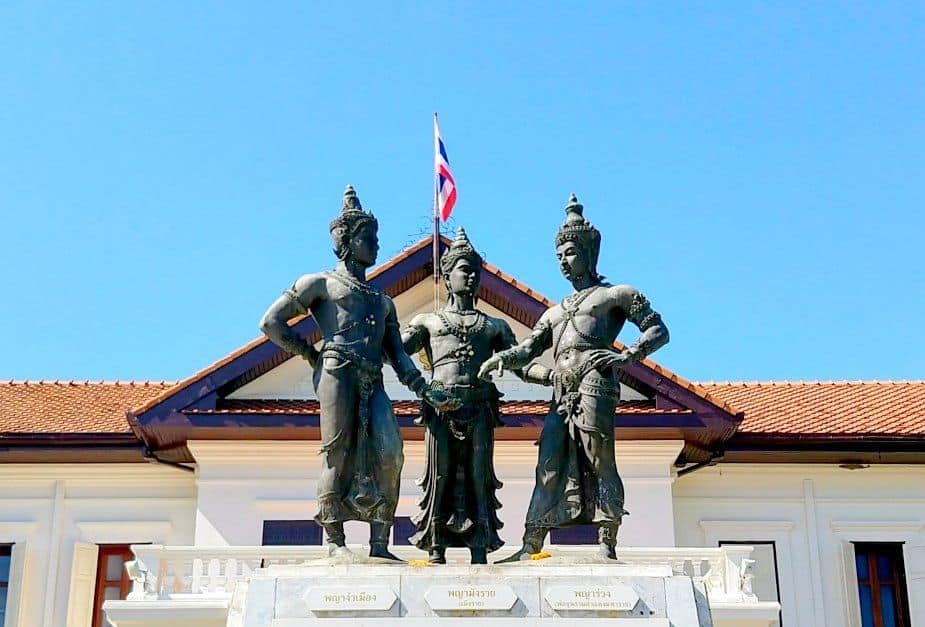
- Khan Academy. View here, it’s free and they keep a record of your, or your child’s learning. It’s superb.
- John Green’s Crash Course in World History. View here. There are other subjects not just history.
- YouTube History Channel . View Here
- When they were small, Miamiopia, Study Ladder and Brain Pop
- Minecraft Homeschool ( now called GameEd Academy) 6 week history units. View here.
- Open University free courses ( my elder son did these from 12 years old, but so far only science).
- BBC history for kids . View here. Good for younger ones.
- UK History Key Stage 3 Curriculum and Workbooks, there are many similar on all subjects.. (For reference).
- Talking to interested, interesting adults, that is so much more valuable than sitting in a classroom with same-aged kids. (There is a famous John Holt quote on this).
Books and audio books . Products such as those below.
So Have I Convinced You That Schools and Classrooms are Redundant?
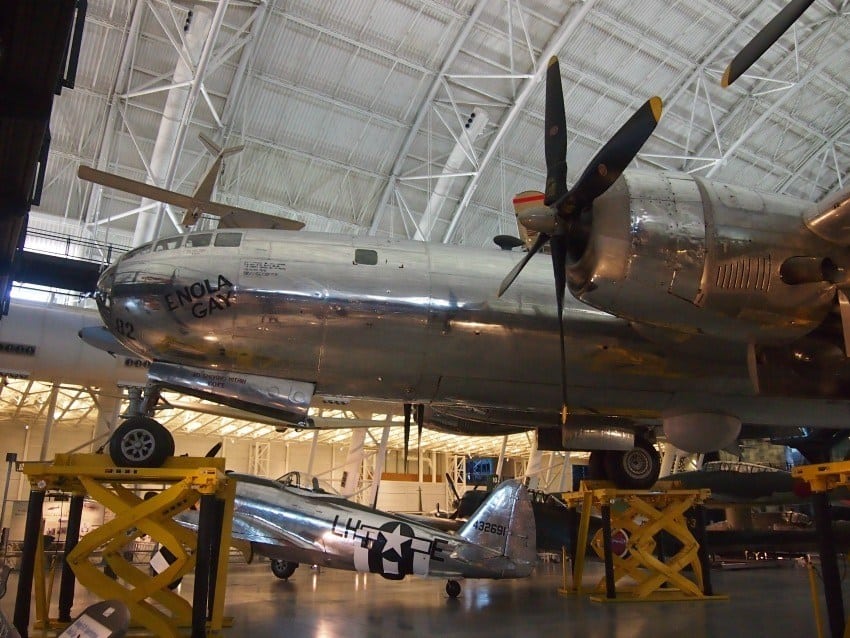
Do you think I’m crazy? Maybe I am, but we’re happy. My lovely child-friendly (they talk to the boys as fellow human beings, I wish more adults would) Hungarians were very open to all of these ideas, the German lady who joined us totally shut down and refused to accept. Homeschooling is illegal in Germany the very idea is unacceptable because of state conditioning and I can’t be bothered to argue.
We LOVE history. History is fun and we learn it how we want to learn it, where and when we want to learn it. It’s whole-life learning not a 40-minute classroom session every Thursday afternoon, it’s a conversation over dinner, it’s exploring an ancient tomb, it’s a wet afternoon with a documentary, it’s everything, it’s life.
“But you can’t take them everywhere.” said the Hungarians.
Yes we can, and we will!
I was never a historian, never interested, but I am now and these kids are right there with me. Soon we will take them to Jordan, Iran, what the heck, Mesopotamia! It will be fabulous. Maybe they’ll want to become archaeologists or Egyptologists, maybe entrepreneurs, maybe gamers or YouTubers, they will always have the option of joining or taking over the family business too, should they choose to (you’re reading it). I just want them to be happy and I’ll do everything I can to make sure they know how to achieve their happiness. How about you go look at our History Quiz for Kids? See how you do.

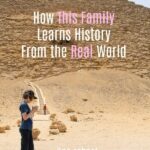

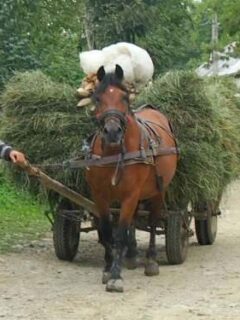
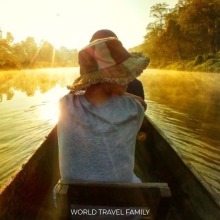
Nadia
Friday 17th of May 2019
Do you have any details of the camp that is in Romania this year for home/world schoolers? I looked at the website a few weeks ago and now can't find it as we were planning on going.
Alyson Long
Saturday 18th of May 2019
I don't know anything about it sorry, nothing to do with us. We did live in Romania for 3 years on and off, so there's a connection with us and Romania, but whatever this is I don't know.
Danielle
Thursday 1st of March 2018
I think this is an amazing way for kids to learn and I’m sure they will retain what they learn far more than cramming for exams.
Melanie Murrish
Thursday 1st of March 2018
That brought a tear to my eye. I think every home schooler needs to be reminded why we chose to do this. :)